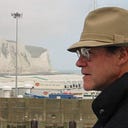Jordan says that ancient stories, epics, myths and religions are more important in contemporary behavior than we give them credit for.
Collectively, culturally, we remember what is important to us.
There is a real reason that biblical stories, for instance, have for so long been retained, institutionally, culturally and individually by millions of modern people. They fulfill a need that is deeper than some other knowledge sources and disciplines.
Science, for instance, has changed everything, and it has become essential in modern life. In some ways, science is the foundation of our way of living in this 21st-century. But there is more to the human soul/psyche than what science or technology can provide.
Jordan Peterson calls himself a scientist; he is a psycology PhD. But he has seen, through talking to hundreds of clients and patients, that science does not answer all the question about who are, how we should live, and what is really important in life.
In his long professional career, Dr. Peterson has observed that the heart and soul of human value and behavior extends far back into our history.
The human psyche--and the institutions that arise from it-- are established so deeply in time and history, that an accurate, functional life-model for the individual and for society cannot be founded only on new ways of doing things.
Why do we remember and retains the ancient stories and faith?
Because they are important to us. For that reason, they are as valid as any othe component for defining who we are and surviving in a world that is still imperiled by the dragon of chaos.
Making order out of chaos has never been simple. Confronting dystopia is no small challenge, and this struggle goes way back in our history. . . way back.
If we remember it, it is important.
